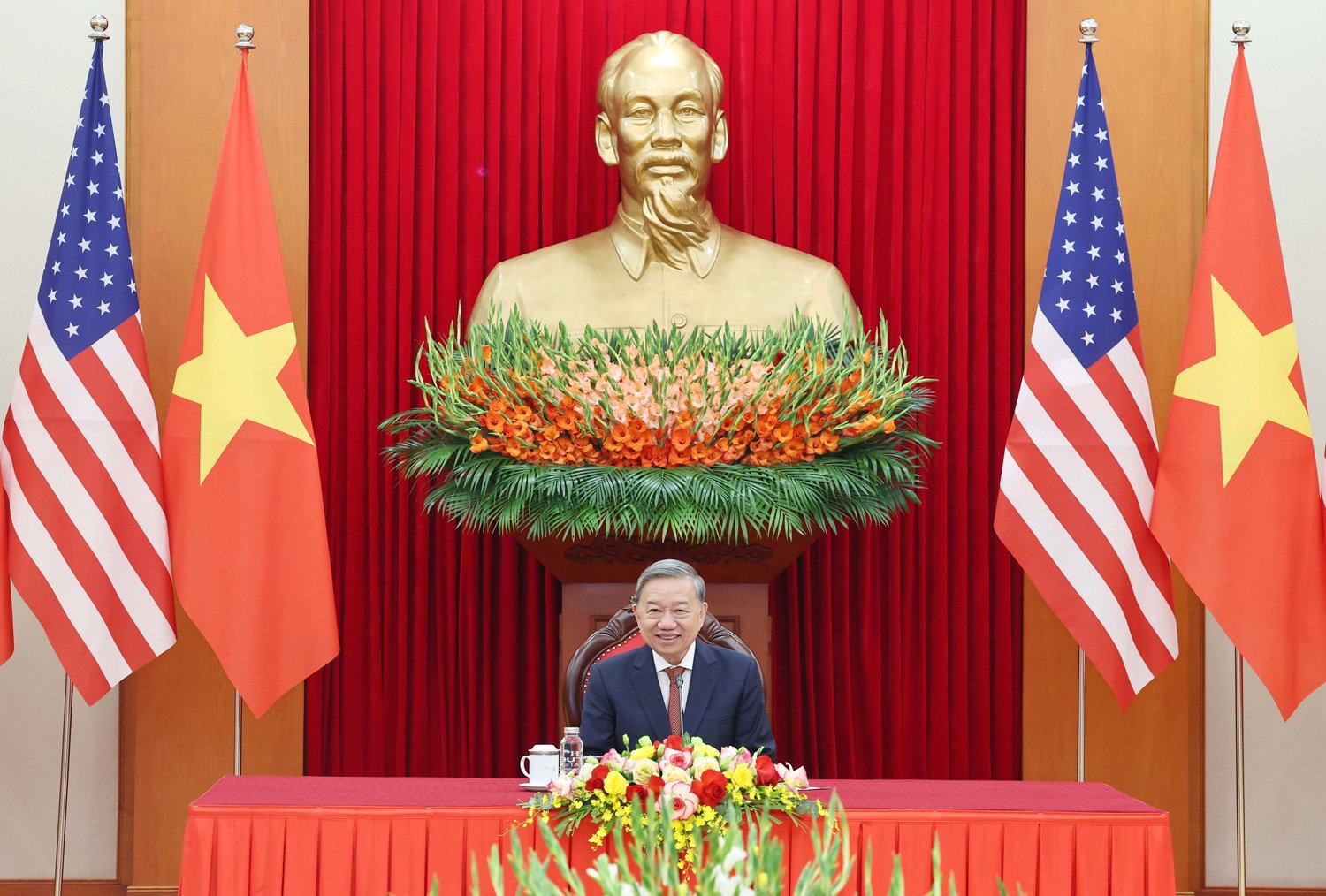
“Model” in international relations
In relations between countries, the process of healing after conflict is always a long journey, requiring persistent efforts and political goodwill from both sides. The Vietnam - US relationship is considered a typical example of the process of overcoming the past, narrowing differences, and moving towards the future. Based on strategic steps, goodwill of cooperation, respect and equality, the two countries have gradually overcome historical obstacles, building an increasingly substantive and effective partnership. Assessing the relationship between Vietnam and the US, General Secretary To Lam affirmed that this is a rare process and a model in international relations in healing and building relations after the war. Over the past thirty years, the two sides have joined hands to create a historical highlight of a model in international relations, like a beautiful picture woven by the contributions and efforts of many people, both typical leaders and those who have quietly been unknown. If we compare each action, no matter how small, to a thread, when woven together and linked together, it will weave a picture of the future, weave extraordinary things (1) .
In fact, the relationship between Vietnam and the United States was formed more than two centuries ago, although limited by geographical distance. As early as the end of the 18th century, US merchant ships came to Vietnam to establish trade relations. Notably, in July 1787, US President Thomas Jefferson, when he was the US Ambassador to France, contacted the Nguyen Dynasty to request fragrant rice seeds from Cochinchina to grow in his homeland. During World War II, the Viet Minh forces led by President Ho Chi Minh assisted American pilots in distress, clearly demonstrating the humanitarian spirit and goodwill for international cooperation of the Vietnamese revolution from the very beginning.
After gaining independence in 1945, President Ho Chi Minh sent many letters, telegrams and messages to US leaders, expressing his desire to establish friendly relations and comprehensive cooperation between the two countries. However, due to the complex international context and strategic calculations during the Cold War, the United States chose to intervene and wage a protracted war in Vietnam. The war caused many losses to both Vietnam and the United States.
With the spirit of peace, forgiveness and the desire for peace of the Vietnamese people, along with persistent efforts from both sides, Vietnam and the United States have gradually resumed dialogue, focusing on humanitarian issues, especially the search for missing people and overcoming the consequences of war. These are practical steps, contributing to laying the foundation for building trust and mutual understanding. In 1986, the policy of renovation was initiated, becoming an important driving force to promote the process of international integration and expand Vietnam's foreign relations. On July 11, 1995, Vietnamese Prime Minister Vo Van Kiet and US President Bill Clinton officially announced the normalization of diplomatic relations, marking a historic turning point and opening a new chapter in bilateral relations, towards cooperation, peace and development.
Since then, the Vietnam-US relationship has been continuously strengthened and developed, gradually improving towards a more substantial, stable and long-term level. In 2000, the two countries signed the Vietnam-US Bilateral Trade Agreement (BTA), creating an important legal foundation to promote economic, trade and investment cooperation. Also in 2000, US President Bill Clinton was the first US head of state to officially visit Vietnam after the war, marking an important step forward in the process of normalizing bilateral relations. In 2005, Vietnamese Prime Minister Phan Van Khai made his first official visit to the United States, opening a new stage of development in high-level delegation exchanges and promoting comprehensive cooperation between the two countries.
In July 2013, during an official visit to the United States, President Truong Tan Sang and US President Barack Obama announced the establishment of the Vietnam-US Comprehensive Partnership, creating a framework for extensive cooperation in many areas, from politics - diplomacy, economics - trade, science - technology to education - training and defense - security. In September 2023, during US President Joe Biden's state visit to Vietnam, the two countries announced the upgrade of their relationship to a Comprehensive Strategic Partnership. This event is an important development, demonstrating the strategic vision and persistent efforts of both countries, in line with President Ho Chi Minh's wishes for a comprehensive friendship and cooperation between Vietnam and the United States.
The Vietnam-US relationship is now entering a new phase of development with a higher and more sustainable stature, opening up prospects for long-term, stable cooperation, actively contributing to peace, cooperation and development in the region and the world. This is not only a manifestation of mutual respect, but also affirms Vietnam's increasingly enhanced role and international position. At the same time, the decision to establish a new framework for relations clearly demonstrates the US's commitment to accompanying Vietnam for common interests.
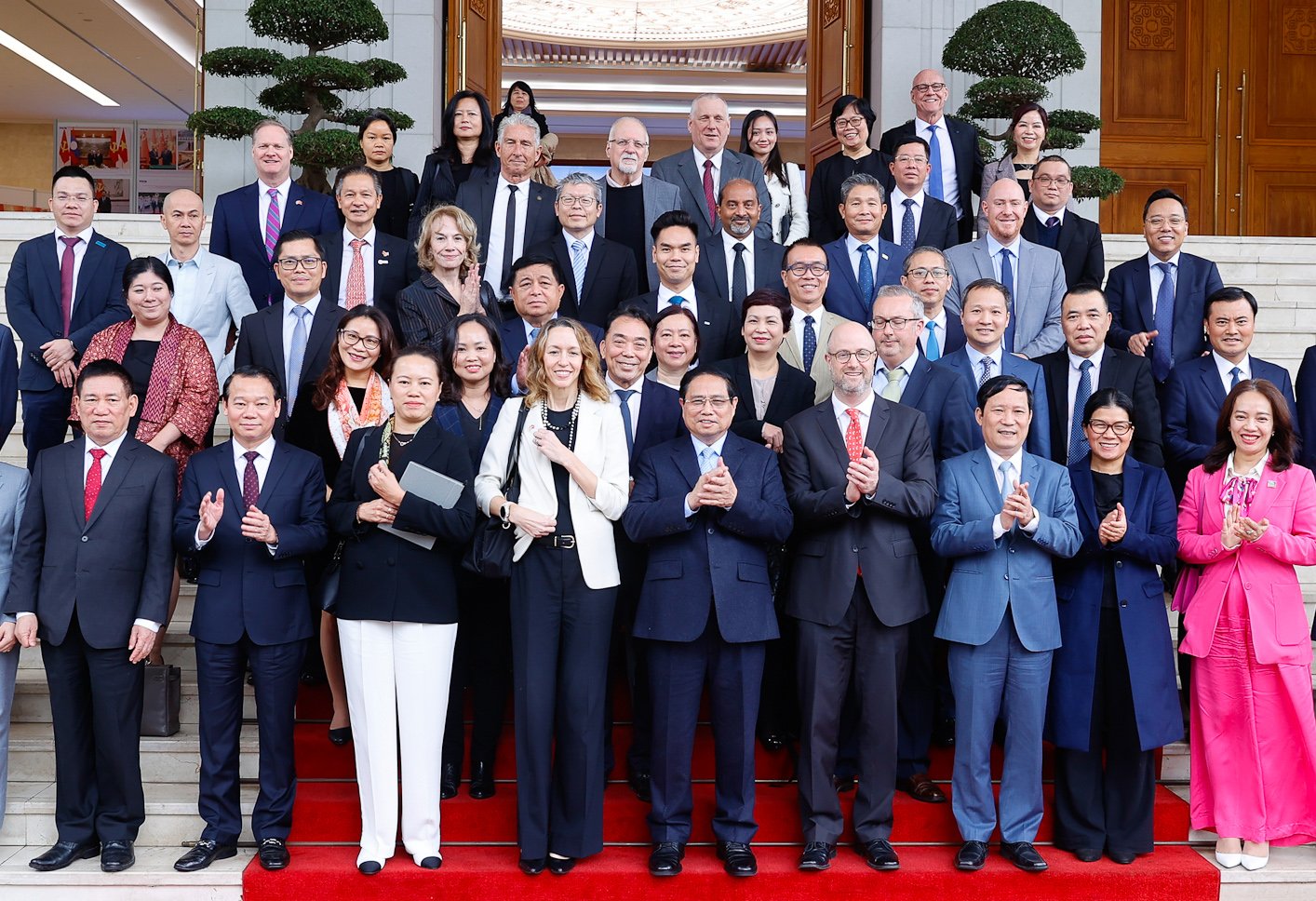
The driving force behind the strong development of bilateral relations over the past 30 years
Looking back over the past three decades, we can affirm that the Vietnam-US relationship has grown stronger, more stable and more substantial. The outstanding results of this process stem from the resonance of many important driving forces, both objective and subjective, from the changes in the international context to the strategic consensus and political determination of the two countries.
First, the post-Cold War international context created favorable conditions for the two countries to reshape their relationship. In a changing world order, where economic cooperation and stability have become common priorities, both Vietnam and the United States clearly recognize the strategic benefits of promoting bilateral relations. That common understanding creates the foundation for both sides to overcome historical barriers, increase dialogue and contact, and move toward long-term goals for the benefit of both peoples.
Second, the efforts of both sides in dealing with the consequences of war. Vietnam and the United States have both shown goodwill in healing the wounds of war, strengthening trust and enhancing mutual understanding. Bilateral cooperation programs on overcoming the consequences of Agent Orange/dioxin, clearing unexploded bombs and mines, and searching for the remains of US soldiers missing in action (MIA) have profound humanitarian significance, symbolizing the transformation in the relationship between the two countries, from confrontation to partnership, from a painful past to a cooperative future.
Third, Vietnam's strong socio-economic development over the past 40 years has been a driving force for further bilateral relations. From an economy primarily based on agriculture, Vietnam has risen to become a dynamic production and trade center in the region, with a gross domestic product (GDP) increasing by about 20 times, ranking among the 40 largest economies in the world and among the 20 countries with the largest trade scale globally. In particular, Vietnam has now established diplomatic relations with nearly 200 countries, including 12 comprehensive strategic partners, 9 strategic partners and 14 comprehensive partners. The important achievements have contributed to enhancing Vietnam's position and overall national strength; creating a strong attraction for major countries, including the United States, in expanding and deepening cooperation in all fields.
Fourth, the role of senior leaders and departments, ministries, branches and localities of the two countries is of special importance in contributing to promoting the stable, substantive and sustainable development of the Vietnam - US relationship. The upgrading of the relationship to Comprehensive Strategic Partnership has opened a new page in the history of bilateral relations, demonstrating a new height of trust, vision and commitment between the two countries; meeting the objective development trend and aspirations of the people of the two countries. The content of the Comprehensive Strategic Partnership clearly reflects the political determination and high consensus of the leaders of the two countries, deepening and further substantivizing bilateral cooperation in all fields. On that basis, new cooperation frameworks and specific implementation mechanisms are being gradually established and expanded. This strategic orientation has strengthened trust and created motivation for organizations, businesses, localities and people of the two countries to strengthen connections, expand exchanges, and deepen the social foundation for bilateral relations in the new development stage.
Fifth, the business communities of the two countries have persistently built a foundation for economic and trade cooperation from a period of many obstacles to a period of comprehensive international integration. Before the two countries officially normalized diplomatic relations, a number of US businesses and investors proactively sought cooperation opportunities and accessed the Vietnamese market, although the legal system at that time was in the process of being perfected. Since 1993, many US businesses have begun to open representative offices in the capital Hanoi. During this time, the business communities of the two countries have also played an important role as a bridge, establishing dialogue channels, lobbying for policies and promoting economic and trade cooperation in a context of many barriers.
The above efforts have created positive momentum, promoting the process of lifting the embargo and gradually building trust between the two countries. Proposals and recommendations from the business community and representative organizations such as the Vietnam - US Trade Council and the US Chamber of Commerce in Vietnam have significantly impacted the US government's policy-making process towards Vietnam. In particular, the decision of US President Bill Clinton to lift the trade embargo in February 1994 was a key turning point, creating the premise for the two countries to officially establish diplomatic relations in July 1995.
It can be affirmed that the strategic interests and long-term vision of the private sector have become one of the important catalysts contributing to narrowing the policy gap and promoting the two countries to come closer together. After the milestone of normalizing Vietnam - US relations, the business communities of the two countries continued to play a key role in concretizing commitments and promoting bilateral cooperation in many fields, especially economics, trade and investment. The signing of the Bilateral Trade Agreement (BTA) in 2000 was a typical demonstration of effective coordination between the state sector and enterprises of the two countries, opening a period of remarkable development in economic relations. In 2007, Vietnam joined the World Trade Organization (WTO) to continue to create a strong impetus for two-way trade growth, bringing bilateral trade turnover to continuously increase over the years.
Many large US corporations have been increasing their investment in Vietnam, with capital, advanced technology and modern management experience, making practical contributions to the socio-economic development process. In contrast, many Vietnamese enterprises have gradually approached the US market, demonstrating their ability to adapt to high standards and increasingly improved competitiveness. The dynamism and cohesion of the business communities of the two countries not only create many jobs, bring practical benefits to the people, but also contribute to deepening and sustaining the economic interests between Vietnam and the US, becoming a solid foundation for the Comprehensive Partnership between the two countries.
Sixth, people-to-people exchange and cultural cooperation are important driving forces for the Vietnam-US relationship to be continuously strengthened and developed in depth. Many US non-profit organizations and social enterprises have actively supported Vietnam in implementing humanitarian programs, such as mine clearance, caring for war victims, and improving living conditions in areas heavily affected by the war. Vietnamese intellectuals, experts, and businessmen in the United States continue to make positive contributions through initiatives connecting education, culture, and innovation between the two countries. These activities not only contribute to deepening mutual understanding between the two countries, but also consolidate the social foundation and enhance public consensus on the Vietnam-US relationship, thereby creating favorable conditions for the bilateral relationship to continue to develop substantially, effectively, and in the long term.
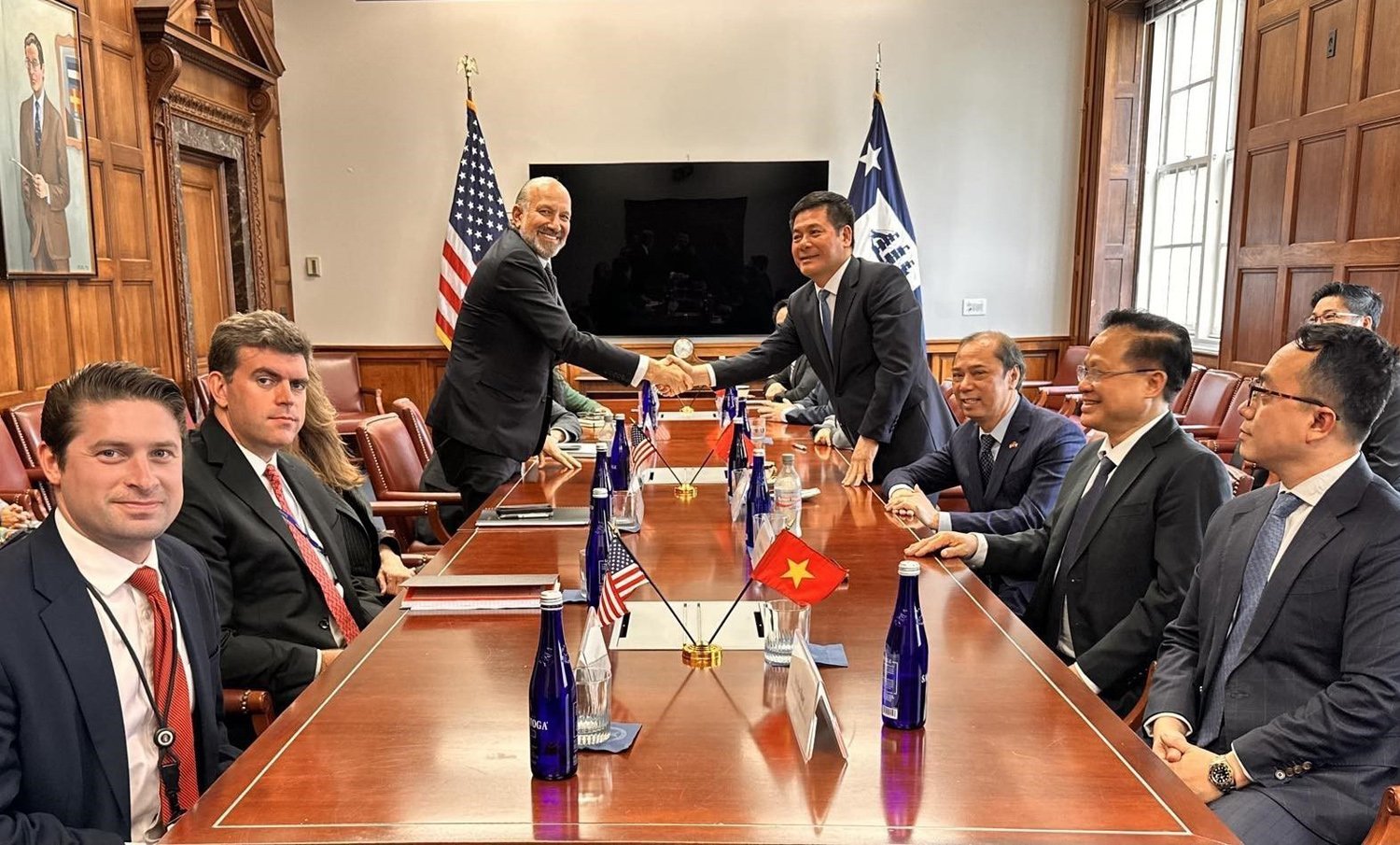
Core values of Vietnam - US relations
The important and practical contributions from the business community and people of the two countries to the Vietnam-US relationship are built on the foundation of profound human values that both sides share. The strong and sustainable development of the bilateral relationship over the past three decades reflects universal values such as peace, cooperation, mutual respect, and aspiration for development. These common values have created a solid spiritual foundation to help the two countries overcome differences, close the past, and look to the future with a spirit of construction and partnership.
First, the value of empathy and conscience. Despite suffering great losses due to the war, the Vietnamese people still demonstrate a spirit of tolerance, are willing to open their hearts, understand and share the pain from both sides. In the United States, many veterans and families whose relatives participated in the war, despite their unhappy memories, have returned to Vietnam with goodwill, participated in humanitarian activities and contributed to development programs. From that empathy and humanity, as the late US Senator John McCain once emphasized, the two sides have “built bridges, instead of erecting walls”, contributing to forming a spiritual foundation for a relationship that looks to the future and transcends the past.
Second, Vietnam and the United States share the aspiration for lasting and sustainable peace. Both peoples have experienced fierce wars with many sacrifices and losses, so they understand the value of peace more deeply. From historical experiences, the aspiration to live in a peaceful and stable environment for development has become a common point in the perception and action of the two countries. The Vietnam - United States Comprehensive Strategic Partnership is a vivid crystallization of this common aspiration. Speaking at the 2023 United Nations General Assembly, US President Joe Biden affirmed that the relationship between the two countries is "a testament to the vitality of the human spirit... and proof that, even from the horrors of war, there is a way forward". The spirit of peace and goodwill for cooperation has helped the two countries overcome the past, look to the future, and deepen bilateral relations in many areas. Vietnam and the United States are together actively contributing to the goal of maintaining peace, stability and sustainable development in the Asia-Pacific region and around the world.
Third, courage and determination are outstanding values that have contributed to shaping the Vietnam-US relationship. In the early 1990s, when the two countries were heavily affected by war, leaders and policymakers with strategic visions of the two countries proactively promoted dialogue, overcoming psychological and political barriers to gradually seek common ground for the long-term interests of the people of the two countries. From responsible decisions, the two countries have laid a solid foundation for the normalization process, opening a new path of cooperation, contributing to the increasingly substantial and effective development of the Vietnam-US relationship.
Fourth, the commitment to mutual development for common interests is a key value, ensuring the sustainable and stable development of the Vietnam - US relationship. Right from the time of normalizing diplomatic relations, the two countries established the fundamental principles in the bilateral relationship of mutual respect, equality and mutual benefit. This is not only a strategic orientation, but also the basis for building political trust and expanding cooperation in many fields. The spirit of cooperation for mutual development has been consistently demonstrated through important milestones, from the signing of the BTA (in 2000) to the establishment of a Comprehensive Partnership (in 2013) and upgrading to a Comprehensive Strategic Partnership (in 2023). These steps clearly affirm the goal of long-term cooperation, for the benefit of the people of the two countries and for peace and common prosperity of the region and the world.
For Vietnam, the cooperative relationship with the United States provides practical resources for socio-economic development, international integration and enhancing national status. For the United States, an independent, self-reliant, prosperous and actively participating Vietnam in the international community is an important factor contributing to strengthening peace and stability in the Indo-Pacific region. Based on the principle of mutual benefit, the two countries have continuously strengthened trust and expanded cooperation in many practical fields. The commitment to jointly promote common interests not only creates momentum for sustainable development for each country, but also contributes to improving the effectiveness of coordination in handling regional and global issues, in line with the two countries' increasing international responsibilities.
Entering a new phase, the Vietnam - US relationship is expected to continue to develop more comprehensively and extensively. On the solid foundation built over the past three decades, the two countries have many opportunities to expand substantive cooperation in many areas such as politics - diplomacy, economics - trade, education - training, science - technology, defense - security, climate change response... With strategic consensus and commitment to common interests, the Vietnam - US Comprehensive Strategic Partnership is entering a deeper and more effective development phase, making practical contributions to peace, stability and prosperity in the region and the world.
In economic, scientific and technological cooperation, innovation is becoming a breakthrough area in the Vietnam - US Comprehensive Strategic Partnership. Vietnam has great potential in high-quality human resources, production capacity and entrepreneurial spirit, contributing to enhancing its position in the global value chain. The United States possesses strengths in technology, finance and modern management capacity, and is an important partner supporting Vietnam in developing digital infrastructure, digital transformation and building an innovation ecosystem. The two countries are facing many advantages to promote business community linkages in the fields of high technology, digital economy and establishing new supply chains, meeting development requirements in the context of the increasingly strong development of the Fourth Industrial Revolution.
In the field of clean energy and climate change response, Vietnam has demonstrated its strong commitment through the goal of achieving net zero emissions by 2050, affirming its determination to transform its growth model towards sustainability. In that spirit, Vietnam wishes to strengthen cooperation with US partners to ensure energy security, promote an effective green transition, in line with global trends and the long-term interests of both countries.
In the field of defense and security, Vietnam and the United States share common interests in maintaining peace, stability, cooperation and the rule of law in the Indo-Pacific region. In the face of increasingly complex traditional and non-traditional security challenges, the two countries continue to strengthen dialogue and promote cooperation within appropriate bilateral and multilateral cooperation frameworks, such as the Mekong-US Cooperation Mechanism (MUSP), ASEAN-US relations, and United Nations peacekeeping operations.
Practice over the past three decades has shown that the Vietnam-US relationship has been resolved through dialogue, goodwill and strategic vision. The key factor is to continue to strengthen trust, maintain mutual respect and consistently pursue the goal of long-term, mutually beneficial cooperation. The values that have been forged from the history of the two countries' relations, along with the framework of a comprehensive strategic partnership, are a solid foundation for the two countries to continue to deepen their bilateral relations in the coming time. Not only stopping at the state level, the sustainable development of the Vietnam-US relationship needs to be promoted by the practical companionship of the business community and people of the two countries. Cooperation programs in the fields of culture, education and training play an increasingly important role in fostering understanding, enhancing exchanges and nurturing a spirit of mutual respect among the young generations of the two countries. This is considered a sustainable social foundation, contributing to ensuring the stable, long-term and comprehensive development of Vietnam - US relations. On the other hand, these efforts will create favorable conditions for Vietnam to realize its aspiration for rapid, sustainable and high-level development in the new era.
In the context of the rapidly changing, complex and unpredictable world situation, the 30-year journey of establishing diplomatic relations between Vietnam and the United States has clearly demonstrated that choosing the method of reconciliation and cooperation is the right and strategic choice, contributing to narrowing historical differences and opening up a “new horizon” for bilateral relations between the two countries. With political determination, goodwill for cooperation and long-term commitment from both sides, the Vietnam - US relationship will certainly continue to develop more deeply, substantially and effectively, playing an increasingly important role in shaping the structure of international cooperation and development in the current era of profound transformation./.
--------------------------
(1) See: “General Secretary and President To Lam: Continue to develop Vietnam - US relations in a stable and substantive manner”, Government Electronic Newspaper, September 23, 2024, https://baochinhphu.vn/tong-bi-thu-chu-tich-nuoc-to-lam-tiep-tuc-dua-quan-he-viet-nam-hoa-ky-ngay-cang-phat-trien-on-dinh-thuc-chat-102240923114241803.htm
Source: https://tapchicongsan.org.vn/web/guest/the-gioi-van-de-su-kien/-/2018/1103602/quan-he-viet-nam---hoa-ky--ba-muoi-nam-nhin-lai.aspx







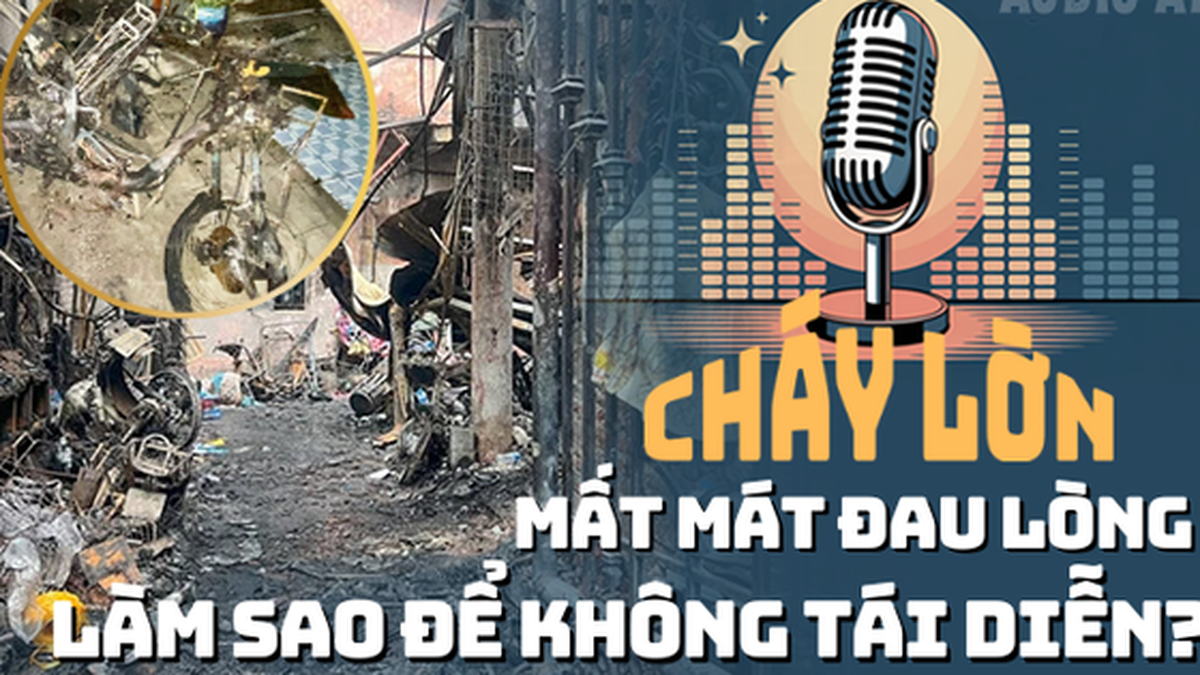

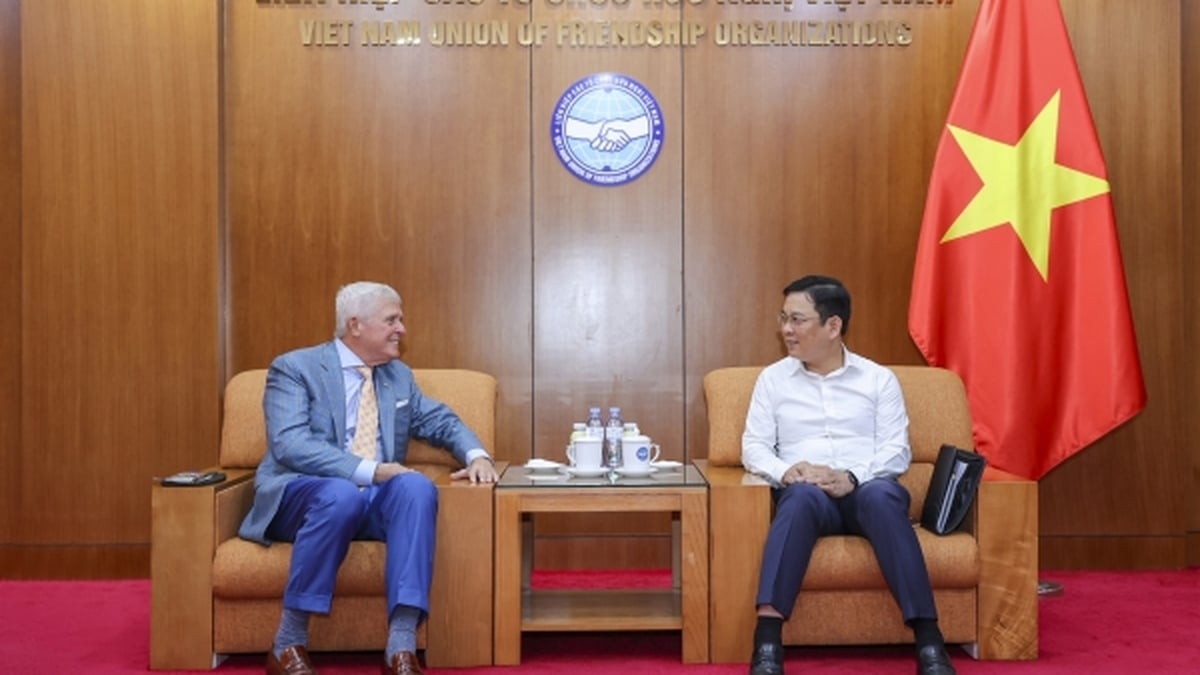

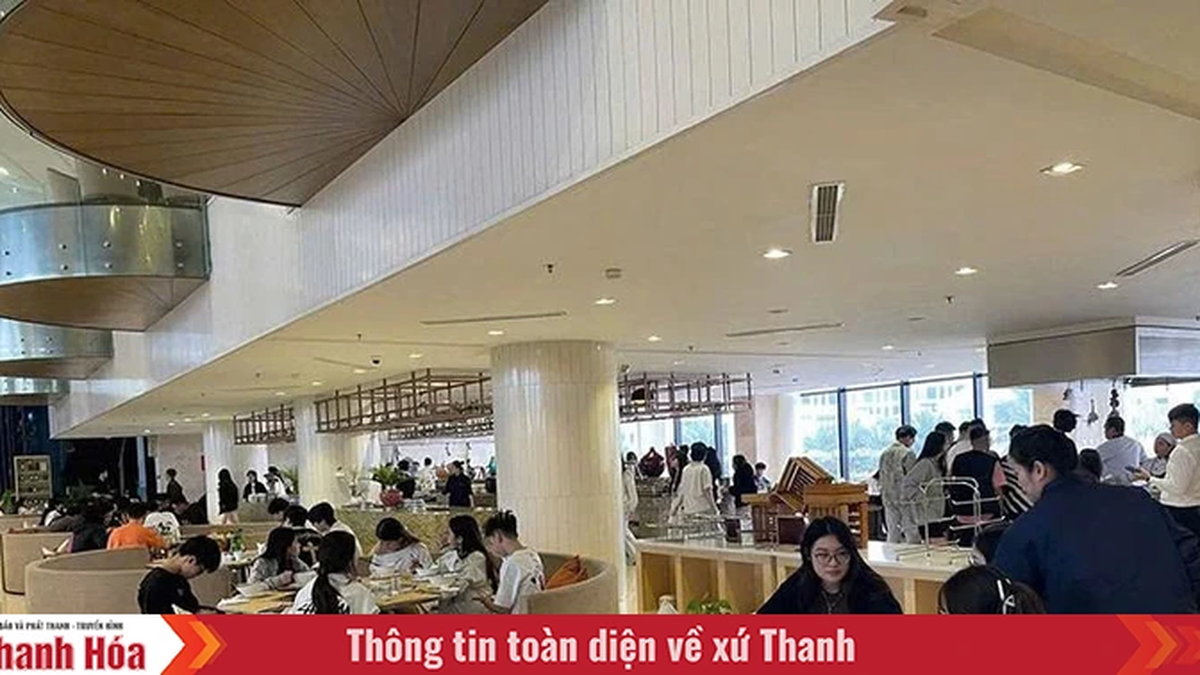
















![[Photo] Gia Lai provincial leaders offer flowers at Uncle Ho's Monument with the ethnic groups of the Central Highlands](https://vphoto.vietnam.vn/thumb/1200x675/vietnam/resource/IMAGE/2025/7/9/196438801da24b3cb6158d0501984818)







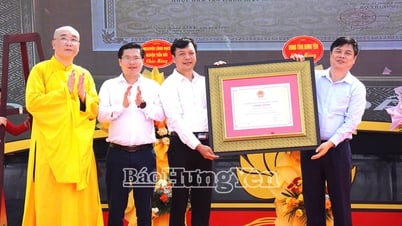



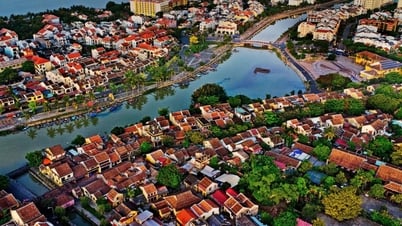



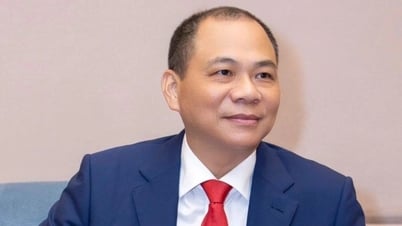

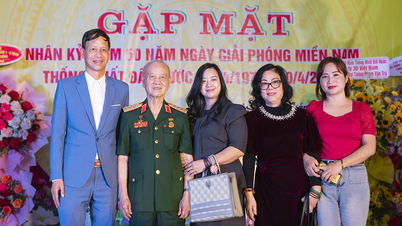

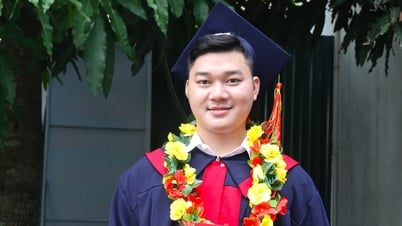










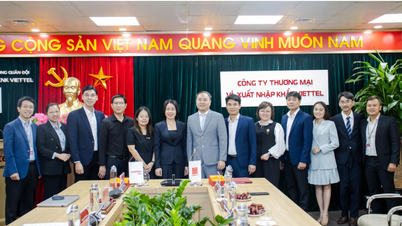
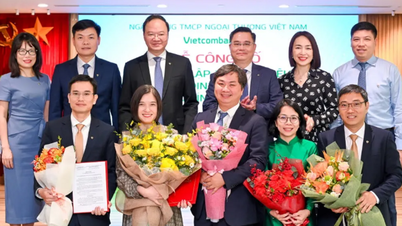

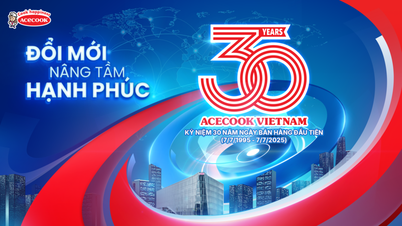

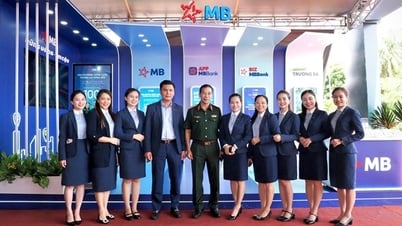
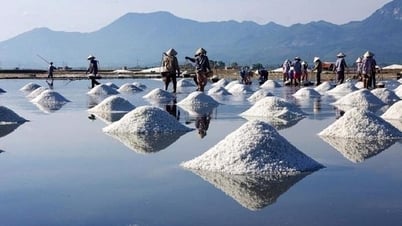
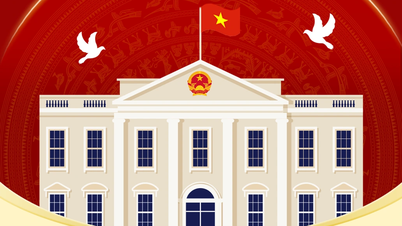

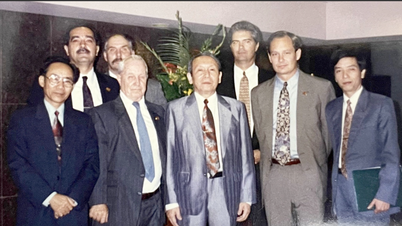


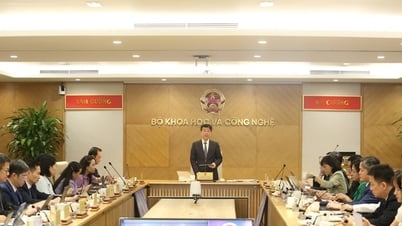

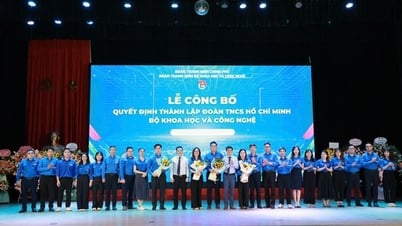


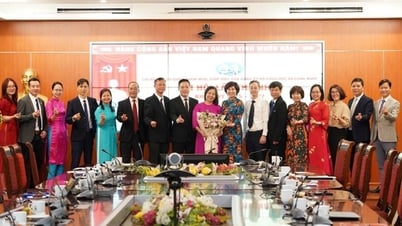


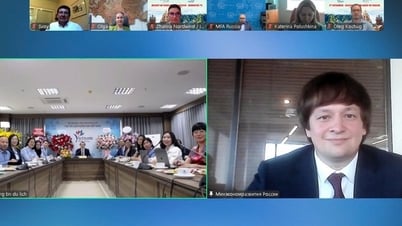





















Comment (0)